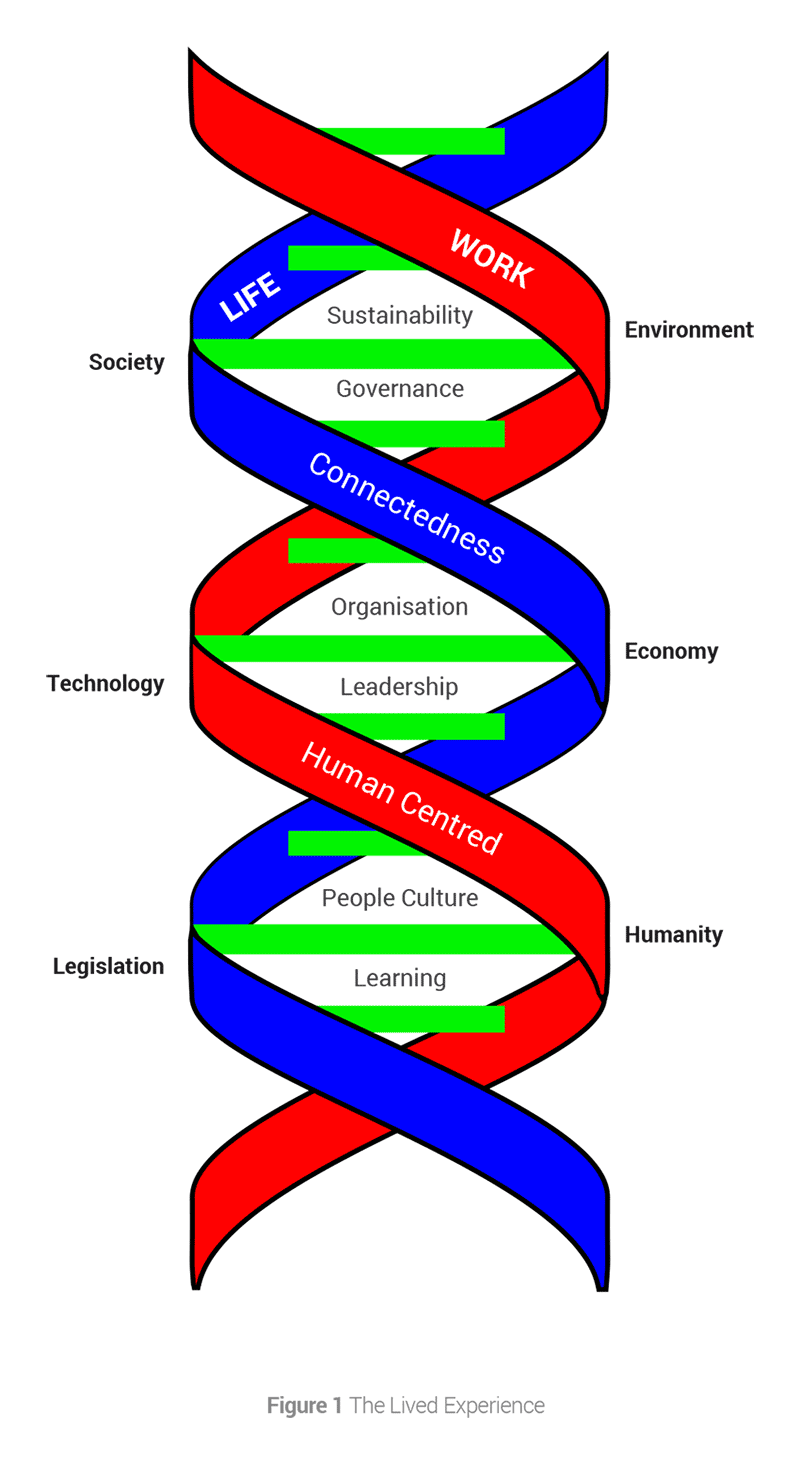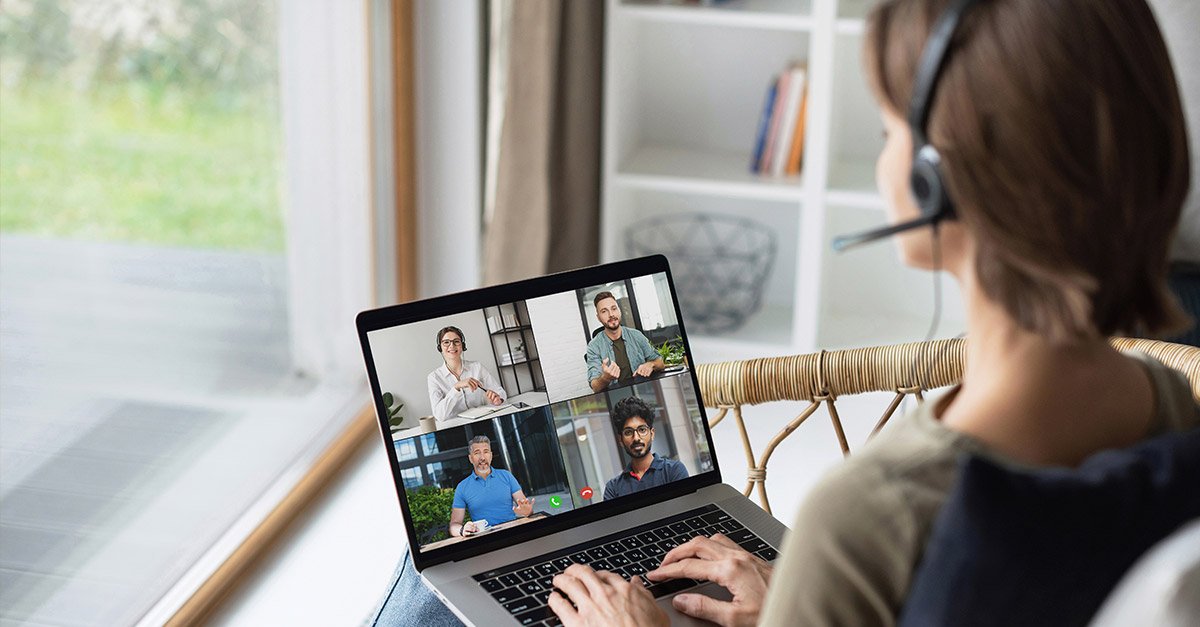Social and technological changes over the last decade have had a major influence on the way we approach work and our wider lives. The boundaries between work and home have been significantly blurred by mobile technology and flexible working arrangements have become much more common.
The pandemic forced many companies to reassess how work was done, as governments mandated that people should work from home where possible. This change proved that many jobs could be done effectively without the need for a daily commute. A global generation of employees experienced the freedom of managing their own time. Managers were forced to measure results/outputs instead of hours/inputs. This has accelerated more agile working arrangements and the growth of independent workers in the ‘gig economy’.
There is growing evidence that corporate leaders are increasingly recognising the importance of the ‘human factor’ in maintaining a prosperous and healthy business. The search for individual employee purpose is generating concepts such as the ‘great resignation’. The need to create more human-centred organisations and businesses has perhaps arrived after many decades of promise.
Against this backdrop, the FutureWork Forum has created a model to represent work as part of a ‘lived experience’ and not as a distinct and separate compartment of life. Previous concepts have illustrated work-life balance as a stressful see-saw of trade-offs being made between competing needs. The FWF model articulates work and life as intertwined helixes, similar to the DNA molecule. By connecting these strands together in one symbiotic helix we place the human experience at the centre of life and in turn advocate a new ‘human-centred’ approach to leadership. The search for purpose and fulfilment is then intimately linked to the role of the organisation.
To develop this view of the future of work, FWF partners have explored the many factors now influencing working life in the twenty-first century. We have focused on the way the pandemic has influenced, and will continue to influence our world. Planet sustainability is high on the list, both from the corporate environmental impact and the citizen employee perspective. The need for a broader view of business purpose is a key influence. The narrow ‘profit is the key goal’ perspective, is replaced by a broader ‘Stakeholder Capitalism’ model that elevates and prioritises the social responsibility of organisations. The impact that work locations have on cities and local communities is combined with new and evolving technologies that allow people to work remotely. This in turn impacts significantly on travel patterns with subsequent benefits for the environment.
As Artificial Intelligence replaces routine decisions in many jobs, the people concerned can expect to be more engaged and experienced in exercising their human judgement. Greater excitement and motivation will come from more interesting and challenging work that puts a premium on trust and empowerment. The difference between an average performing organisation and an outstanding one will be in the willingness of the workforce to ‘go the extra mile’. Leaders who focus on the human factor will create a culture that harnesses human talent and prosperity for all. Leaders who obsess around narrow financial goals and view people as a disposable commodities will not survive for long in the twenty-first century.
 The two key strands of our ‘DNA’ model of work represent a Human Centred approach to life. Surrounding the strands are the external factors that set the context for any work scenario. How work connects with the rest of our lives is heavily influenced by the personal circumstances of the employee which in itself is a product of the surrounding environment. Any organisational role is now experienced in the wider and richer context of life as opposed to the traditional job tasks and description.
The two key strands of our ‘DNA’ model of work represent a Human Centred approach to life. Surrounding the strands are the external factors that set the context for any work scenario. How work connects with the rest of our lives is heavily influenced by the personal circumstances of the employee which in itself is a product of the surrounding environment. Any organisational role is now experienced in the wider and richer context of life as opposed to the traditional job tasks and description.
The COVID-19 pandemic is the biggest disruption to working life since the Second World War. It has radically changed peoples’ expectations. Work is now part of our broader ‘lived experience’. Employers must recognise this if they want to retain talented and engaged people. Millions have experienced freedom from the daily office commute and a calendar full of back-to-back meetings. Home working has been transformational. It’s not just a change of location, it’s a radical change in taking responsibility for managing our lives
Prior to the pandemic, work routines were dictated by a belief (and often a contract) that the ‘working week’ was time owned by the employer. If the employee wished to take time off for personal reasons, they needed permission. Most of their waking hours were bought by a corporate entity and in return they carried out duties in the form of a job. Enforced working from home obliterated this link. People gained control overnight over what they chose to do during weekdays. Family responsibilities could now be attended to during the day and work caught up with during the evenings. The classic work and home boundary evaporated.
Having tasted the benefits of autonomy, employees are reluctant to return to the old model of work. The master/servant relationship is now a relic of the past. People expect to be empowered and trusted to get on with the job without needing close supervision. Much to the surprise of many managers, staff who were left to manage themselves at home during the lockdown got the work done. In many cases productivity actually improved because employees were able to choose when to work and not required to work at a time enforced on them by the boss.
Current surveys show that around a third of the working population are refusing to return to the old way of working. Employers who are insisting that people go back to a daily commute even though some of their work can be done remotely, are facing the ‘Great Resignation or Reshuffle’ with increases in employee turnover appearing in many countries around the world. We have leapfrogged into an era of Hybrid Working where some work is still performed at a fixed time and place, but the rest is done flexibly with the employee deciding when and where.
Enlightened leaders are increasingly realising that their role is to create an environment of prosperity for all. Any workforce must be inspired beyond simple pay and benefits to deliver corporate goals that have a sense of wider societal purpose and contribution. The old industrial shareholder model is rapidly decaying. It may not disappear overnight but it is in decline. The future belongs to the human-centred organisation.
The Lived Experience, Working Life in the 21st Century:
This is one of a series of 13 practical articles on leadership written by the Future Work Forum (FWF) for the European Foundation for Management Development (EFMD), an accreditation body for business schools globally with a membership of 30,000 management professionals. Our partners have contributed to a special edition of their Global Focus magazine.

About the Future Work Forum:
The FWF exists to explore the working world of tomorrow. It is a think tank and network of highly skilled experts who share a passion to create a better, more humanised workplace, inspiring a new generation of leaders.


